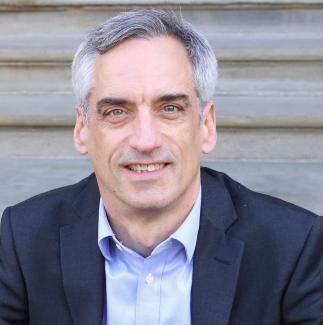BIGD, BRAC University international conference 2014 on political economy, accountability and governance
A three-day International Conference on Political Economy, Accountability and Governance was held in Dhaka from 11-13 December, 2014. The event was organised by the BRAC Institute of Governance and Development (BIGD), BRAC University, in partnership with the Think Tank Initiative (TTI) of the International Development Research Centre (IDRC), the Effective States and Inclusive Development (ESID) of the University of Manchester, and the IGC.
Dr. Masihur Rahman, Honourable Economic Affairs Adviser to the Prime Minister, inaugurated the conference while H.E. Brian Allemekinders, Charge d’affaires, Canadian High Commission in Dhaka, attended as a Special Guest.
While inaugurating Dr. Masihur said the concepts of governance and political economy are very inclusive and diverse in nature, and that the scope of their studies has expanded immensely over the years. He emphasised the technical and methodological rigour of research before any policy recommendation is made. He agreed that the concept of governance has replaced that of government. While government is more concrete, governance is more inclusive. He urged those who participate in the debate and discourse on policy to show a certain sense of responsibility and to engage in constructive criticism of the government.
H.E. Brian Allemekinders said democracy is much more than mere elections; it requires an independent judiciary and election commission and space for mass media. He added there cannot be good governance without true representation, and true development is not possible without good governance.
"For Bangladesh to move forward, confrontational politics must diminish. The trend of politicising institutions must decrease. For this to happen, citizens will have to ask for it and demand it and hold your government and political parties accountable," he added.
Earlier, Dr. Sultan Hafeez Rahman, Executive Director, BIGD; Dr. Syed Saad Andaleeb, Vice Chancellor, BRAC University, and Ms. Julia Brunt, ESID welcomed the distinguished guests and the participants at the inauguration of the international conference.
In the inaugural panel titled, Whither Governance in South Asia?, Prof. Kunal Sen, ESID and Prof. Wahiduddin Mahmud, Member of the former Caretaker Government presented two separate papers titled, “Governance and Development Outcomes in Asia” and “Bangladesh: The Limits of a Developmental Welfare State under Governance Dysfunction” respectively. Prof. Mushtaq Khan of School of Oriental and African Studies (SOAS) of University of London; Dr. Sanjay Kumar, Director of Centre for the Study of Developing Societies (CSDS) , Delhi, and Dr. Sultan Hafeez Rahman were the panellists, and Professor Rehman Sobhan, Chairman, Centre for Policy Dialogue (CPD) chaired the session.
Prof. Wahiduddin Mahmud said Bangladesh has the image of a developmental welfare state, as reflected in the country's constitution and in numerous other official documents, but the country has to contend with a serious problem of dysfunctional governance. According to Prof. Mahmud, although there was a transition from an authoritarian rule to parliamentary democracy in 1991, the political culture is one that does not allow democratic practices to flourish or one that can deliver accountable and transparent governance.
Prof. Wahiduddin Mahmud tried to explain the paradox in terms of the nature of development interventions, and the underlying political incentives and accountability mechanism.
"The core government system is characterised by a dysfunctional parliament, highly confrontational politics, absence of democratic practices within the major parties, polarisation of the state institutions and a corrupt and inefficient bureaucracy," said Prof. Mahmud. Consequences of this extremely weak governance structure and non-existent accountability mechanism are most acute in the spheres of public provisioning of services, he added.
Prof. Mushtaq Khan, from SOAS argued that democracy is not essential to increase economic growth, but is crucial for political stability. He also argued that a country could grow economically despite widespread corruption. In this connection he gave example of the Indian state of Tamil Nadu.
Commenting on findings of the speakers, participant Prof. Ataur Rahman, President of Bangladesh Political Scientists Association said there were signs that Bangladesh has turned into a one party state in the absence proper function by the election commission and anti-corruption commission.
Professor M.M. Akash of Dhaka University said while the wealthy people mostly spend their money either on "wasteful" luxury or siphon it out of the country instead of investing in the domestic economy, the contributions of the poorer sections are driving growth. He added, despite bad governance and the acts of the rich, Bangladesh's economy is growing for farmers, expatriate wage earners, garment workers, and small and medium entrepreneurs.
Former Minister M.K. Anwar pointed out the lack of serious civic rights under the present government.
In the three-day conference, 29 papers were presented in a total of nine sessions titled. The conference was participated by 44 economists, social and political scientists from USA, UK, Japan, India, Nepal and Bangladesh.
At the concluding day, the participants agreed that good governance is not a requisite for development. However, smart implementation of policies and programmes, enhanced infrastructural development, and effective functioning of democratic institutions must be taken care of in order to achieve higher economic growth. Moreover, electoral and political reforms, avoiding confrontational politics, free and fair justice, and strengthened institutions are needed to boost economic growth, which will help to establish a working democracy.
The speakers analysed the relation between economic growth and inequality, political institutions and accountability, politics of recognition, social provisioning and inclusive governance, decentralisation and local governance, sustainable urban growth, poverty alleviation and democratic governance in their papers in the conference. The conference comprised presentations of empirical research, especially evidence based.
In the concluding session, BIGD Executive Director Dr. Sultan Hafeez Rahman said, Bangladesh should turn the large human capital into skilled, experience-based knowledge capital and engage them to accelerate the economic growth to the next level. He thanked the participants saying knowledge should be nurtured collectively and that’s why the conference has been organised. He acknowledged the support of BIGD’s partners in organising the conference.


